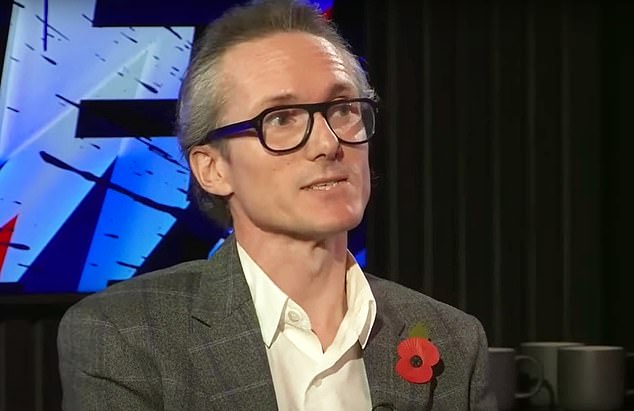The British Medical Journal has been accused of “abandoning science” after rejecting research from leading academics into their views on the trans debate.
One researcher’s article was rejected because he was “opinionated” and had tweeted supporting author JK Rowling’s gender-critical views.
The other’s investigation was taken offline by BMJ staff and accused of being “transphobic” based on a student article about him. Both academics viewed the discussions in BMJ staff emails after making Freedom of Information requests.
Dr Michael Biggs, a sociologist at Oxford University, was blacklisted for an article that said the official number of transgender people in the UK (262,000) is unreliable due to a poorly worded census question. confused
Dr Michael Biggs (pictured), a sociologist at Oxford University, was blacklisted for an article which said the official number of transgender people in the UK (262,000) is unreliable.

Dr John Armstrong (pictured), a mathematician at King’s College London, presented a paper to BMJ Open on findings that institutions with higher ‘Athena Swan’ ratings (an award given to promote gender equality ) had fewer women in management positions.
He said several people who do not speak English as a first language had answered “no” to: “Is the gender you identify with the same as the one registered at birth?”
Emails from BMJ staff claimed that Dr. Biggs’ article “portrays trans people as uneducated and implies that they were not able to understand the census question.”
The emails also revealed concerns about him “being known to be transphobic” after a 2018 student article claimed he had tweeted critical views about trans people.
Dr. Biggs said that “some journal editors…don’t care whether an article is true, but whether it helps disadvantaged or oppressed minorities.”
Dr John Armstrong, a mathematician at King’s College London, presented a paper to BMJ Open on findings that institutions with higher ‘Athena Swan’ ratings (an award given for promoting gender equality) had fewer women in high level positions.
After it was rejected, he discovered that a staff member had told a colleague that his social media account had “colored our impression of the manuscript.”
One email said “he is quite argumentative and opinionated”, and highlighted how he retweeted a post by JK Rowling in support of activist Maya Forstater, who lost her job after saying people couldn’t change their biological sex.
Dr Armstrong said: “If a journal censors findings because it doesn’t like the results or the author, it has abandoned science.”
The BMJ denied that it would reject an article for “political or ideological reasons.”


